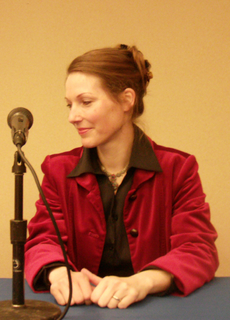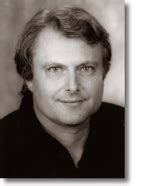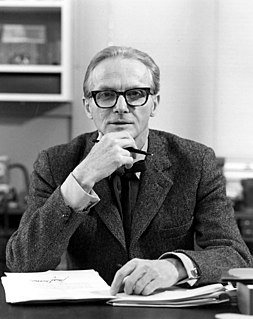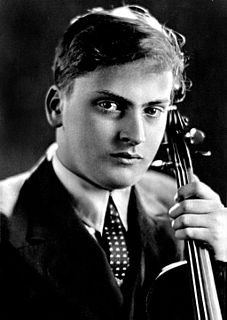Top 80 Rigidity Quotes & Sayings - Page 2
Explore popular Rigidity quotes.
Last updated on April 16, 2025.
[University students] hated the hypocrisy of adult society, the rigidity of its political institutions, the impersonality of its bureaucracies. They sought to create a society that places human values before materialistic ones, that has a little less head and a little more heart, that is dominated by self-interest and loves its neighbor more. And they were persuaded that group protest of a militant nature would advance those goals.
Whenever we pride ourselves upon finding a newer, stricter way of thought or exposition ? we lose something of the ability to think new thoughts. And equally, of course, whenever we rebel against the sterile rigidity of formal thought and exposition and let our ideas run wild, we likewise lose. As I see it, the advances in scientific thought come from a combination of lose and strict thinking, and this combination is the most precious tool of science.
[On Richard P. Feynman's live demonstration of the rigidity of the O-rings when cold that doomed the space shuttle Challenger, killing seven astronauts:] The public saw with their own eyes how science is done, how a great scientist thinks with his hands, how nature gives a clear answer when a scientist asks her a clear question.
The body stores the trauma of our lives in muscular rigidity, thereby keeping us stuck in the past. When we release the tension in the body and align ourselves with gravity, we take a new stand in life. This allows us to be at ease with ourselves and in harmony in our relationship to others and to our planet.
The Amazons is a stupendous achievement--a long-anticipated centerpiece in the great puzzle of humankind. The story of these forbidden women, silenced for so long by the rigidity of traditional scholarship, is as exciting and surprising as a bestselling murder mystery; I simply couldn't put it down. Through scholarly brilliance and passion, Adrienne Mayor has opened the door to a forgotten world of gender equality, and her book ought to be required reading in every college history course.
I see Professionalism as a spreading disease of the present-day world, a sort of poly-oligarchy by which various groups (subway conductors, social workers, bricklayers) can bring things to a halt if their particular demands are not met. (Meanwhile, the irrelevance of each profession increases, in proportion to its increasing rigidity.) Such lucky groups demand more in each go-round - but meantime, the number who are permanently unemployed grows and grows.
As Colin Wilson has written, "modern civilisation, with its mechanised rigidity is producing more outsiders than ever before-people who are too intelligent to do some repetitive job, but not intelligent enough to make their own terms with society." Those "intelligent enough" to make their own terms with society are what we will later refer to as artists of life. The outsider views himself as a product of a culture he rejects-the artist views himself as a culture-builder.
Physically it's kind of lassitude, the apathy and tiredness that precedes the flu or some other illness, or death. My legs ache and feel heavy, my skin has become more sensitive to cold and to heat, to the hardness or rigidity of things. Nothing interests me, I feel uncomfortable being still but would feel even more uncomfortable if I moved. I don't know whether speaking is painful or just boring. I sit here, staring straight ahead, with no desires, no needs, hollow. I'm not even sad. I feel only passivity and indifference.
Footballers today are forced to conform to a bodily aesthetic that in its rigidity and uniformity makes fashion models look as varied as snowflakes. This wasn't always so. Up until the 1980s most teams in all divisions had a couple of fat ones, a couple of little ones, at least one bandy one, one completely covered in hair, two weaklings and a chap with no neck. This was an era when you didn't need names on the backs of shirts in order to tell who's who, you could clearly identify them with your eyes half shut from the other side of the pitch.
The cry for freedom is a sign of suppression. It will not cease to ring as long as man feels himself captive. As diverse as the cries for freedom may be, basically they all express one and the same thing: The intolerability of the rigidity of the organism and of the machine-like institutions which create a sharp conflict with the natural feelings for life. Not until there is a social order in which all cries for freedom subside will man have overcome his biological and social crippling, will he have attained genuine freedom.
And last of all we have the secondary forms of crystals bursting in upon us, and sparkling in the rigidity of mathematical necessity and telling us, neither of harmony of design, usefulness or moral significance, nothing but spherical trigonometry and Napier's analogies. It is because we have blindly excluded the lessons of these angular bodies from the domain of human knowledge that we are still in doubt about the great doctrine that the only laws of matter are those which our minds must fabricate, and the only laws of mind are fabricated for it by matter.
Let us simmer over our incalculable cauldron, our enthralling confusion, our hotchpotch of impulses, our perpetual miracle - for the soul throws up wonders every second. Movement and change are the essence of our being; rigidity is death; conformity is death; let us say what comes into our heads, repeat ourselves, contradict ourselves, fling out the wildest nonsense, and follow the most fantastic fancies without caring what the world does or thinks or says. For nothing matters except life.
Men call women faithless, changeable, and though they say it in jealousy of their own ever-threatened sexual honor, there is some truth in it. We can change our life, our being; no matter what our will is, we are changed. As the moon changes yet is one, so we are virgin, wife, mother, grandmother. For all their restlessness, men are who they are; once they put on the man's toga they will not change again; so they make a virtue of that rigidity and resist whatever might soften it and set them free.
The trick is: how do you talk about natural selection without implying the rigidity of law? We use it as almost an active participant, almost like a god. In fact, you could substitute the word 'god' for 'natural selection' in a lot of evolutionary writings and you'd think you were listening to a theologian.
Our schools offer no conception of the scientific process of discovery. They do not encourage creative thought, in fact, they stifle it through too much rigidity in teaching. If we set out to give as little help as possible to originality in science, we could hardly devise a better plan than our education system. Youngsters ought to be told what is unknown about ourselves and our universe as well as what is known.
Growing up is difficult. Strangely, even when we have stopped growing physically, we seem to have to keep on growing emotionally, which involves both expansion and shrinkage, as some parts of us develop and others must be allowed to disappear...Rigidity never works; we end up being the wrong size for our world.
We embark unhesitatingly on the path, in a direction that is absolutely right and urgent, supported by everyone, in the knowledge that this path is but a learning process... We have to keep on learning, creating, applying, by-passing, touching upon, refining and clarifying a number of notions and details that need to be improvised and applied and which, thank God, we cannot foresee. The only rigidity lies in our will, our conviction that we are on the right road and that our initiatives are most pressing.
A fundamental mistake to call vehemence and rigidity strength! A man is not strong who takes convulsion-fits; though six men cannot hold him then. He that can walk under the heaviest weight without staggering, he is the strong man . . . A man who cannot hold his peace, till the time come for speaking and acting, is no right man.



















